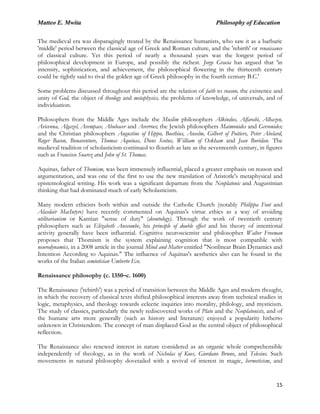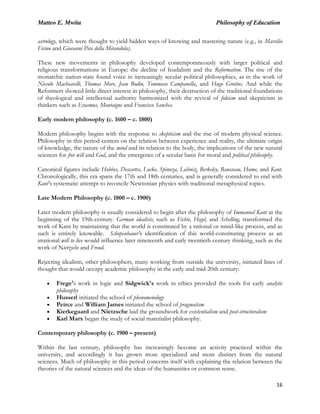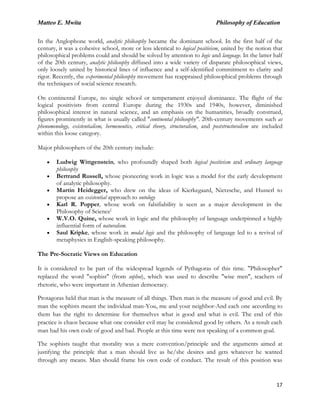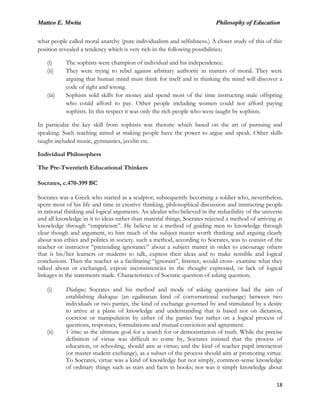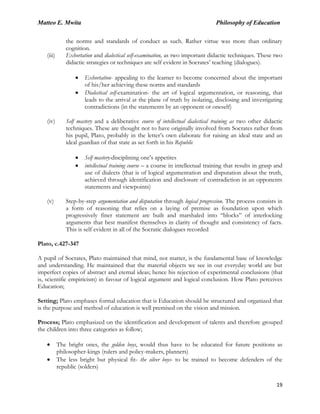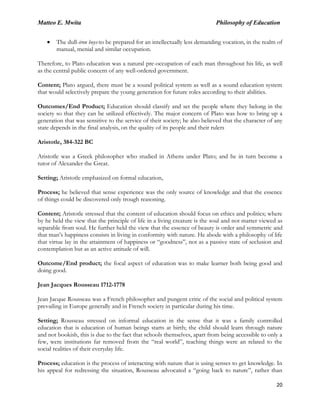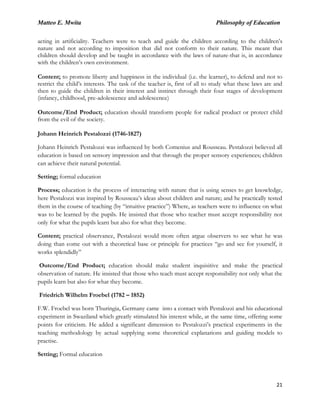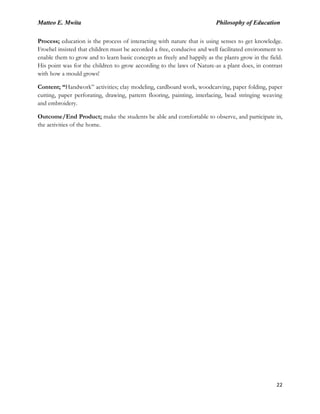Matteo E. Mwita provides definitions and discussions of key concepts in the philosophy of education, including philosophy, education, and the philosophy of education. He outlines four main branches of philosophy - metaphysics, epistemology, axiology, and logic - and discusses their importance for teacher education. Metaphysics addresses fundamental questions about reality, existence, and human nature. Epistemology examines the nature of knowledge and how we obtain it. Axiology studies values and ethics. Logic analyzes reasoning and argumentation. Effective teaching requires understanding in these philosophical areas.
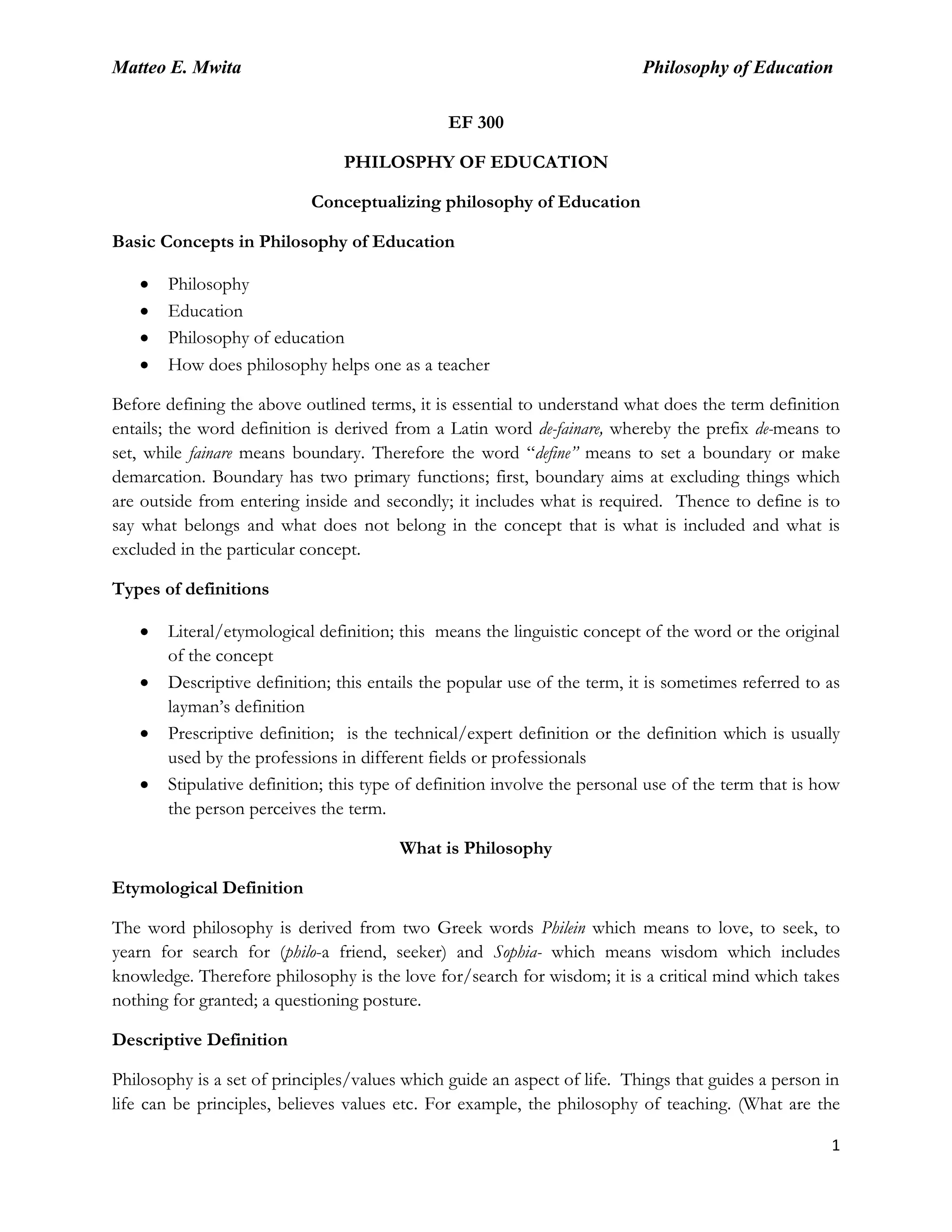
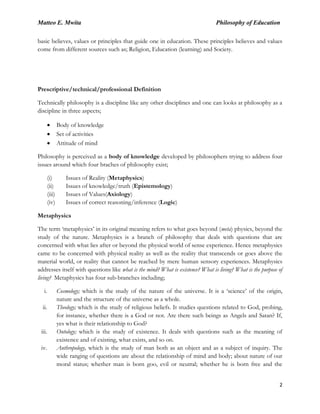
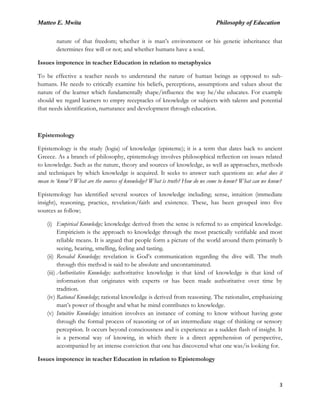
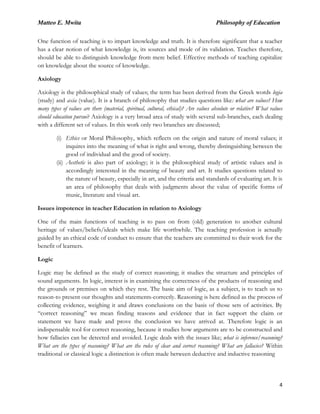
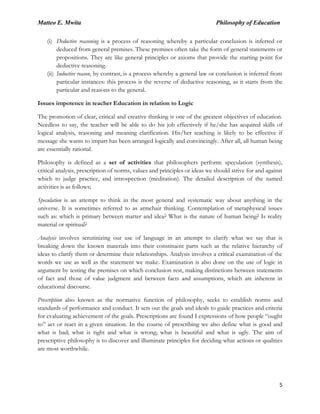
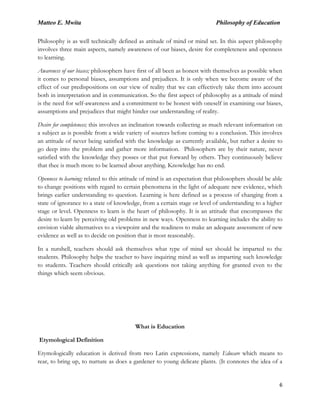
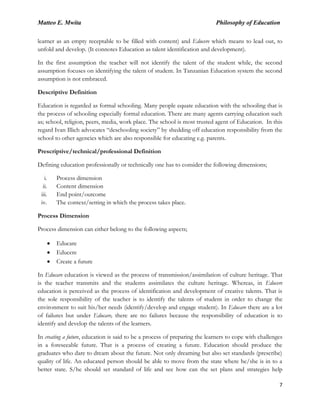
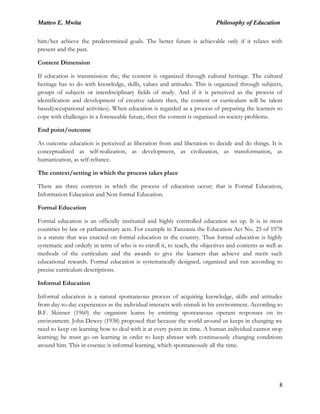
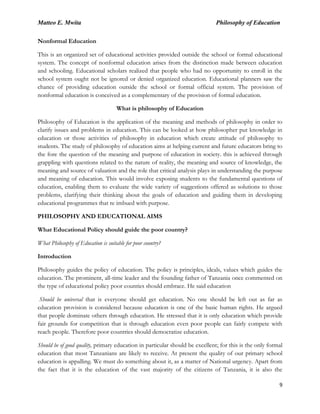
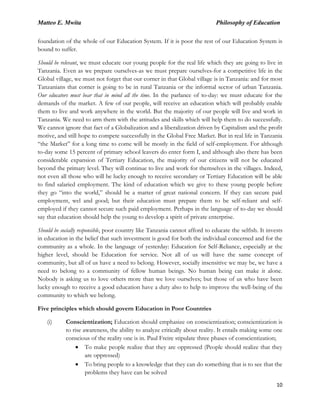
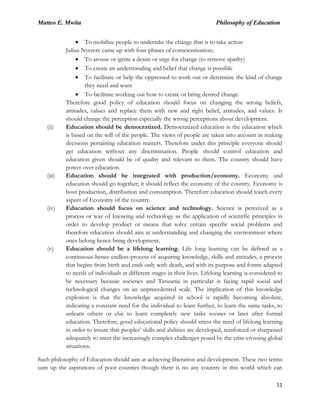
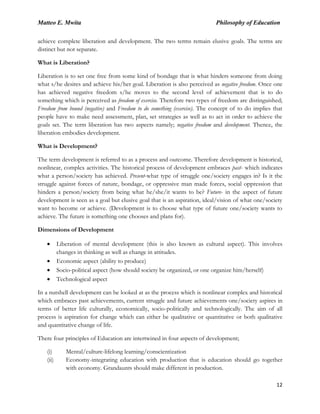
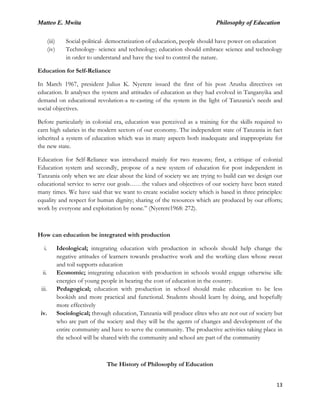
![Matteo E. Mwita Philosophy of Education
14
Introduction
There are different ways of organizing knowledge; knowledge can be organized through branches of
philosophy and around individual philosophers that those philosophers who talked about
philosophy, knowledge can as well be organized through epoch/eras; Ancient philosophy, Medieval
philosophy, Renaissance philosophy, Early and Late Modern philosophy and Contemporary
philosophy. Or continent; Asian philosophy, European philosophy, American Philosophy, African
Philosophy etc. Lastly, knowledge can be organized through School of thought.
Epoch/eras of Philosophy
Ancient philosophy (c. 600 B.C.E. – c. C.E. 500)
Ancient philosophy is the philosophy of the Graeco-Roman world from the 6th century [circa 585]
BC to the 6th century AD. It is usually divided into three periods: the pre-Socratic period, the period of
Plato and Aristotle, and the post-Aristotelian (or Hellenistic) period. A fourth period is sometimes
added which includes the Neoplatonic and Christian philosophers of Late Antiquity. The most
important of the ancient philosophers (in terms of subsequent influence) are Plato and Aristotle.
The main subjects of ancient philosophy are: understanding the fundamental causes and principles
of the universe; explaining it in an economical and parsimonious way; the epistemological problem of
reconciling the diversity and change of the natural universe, with the possibility of obtaining fixed
and certain knowledge about it; questions about things which cannot be perceived by the senses,
such as numbers, elements, universals, and gods; the analysis of patterns of reasoning and argument; the
nature of the good life and the importance of understanding and knowledge in order to pursue it; the
explication of the concept of justice, and its relation to various political systems.
In this period the crucial features of the philosophical method were established: a critical approach to
received or established views, and the appeal to reason and argumentation.
Medieval philosophy (c. 500–c. 1350)
Medieval philosophy is the philosophy of Western Europe and the Middle East during the Middle Ages,
roughly extending from the Christianization of the Roman Empire until the Renaissance. Medieval
philosophy is defined partly by the rediscovery and further development of classical Greek and
Hellenistic philosophy, and partly by the need to address theological problems and to integrate sacred
doctrine (in Islam, Judaism, and Christianity) with secular learning.
The history of medieval philosophy is traditionally divided into three main periods: the period in the
Latin West following the Early Middle Ages until the twelfth century, when the works of Aristotle and
Plato were preserved and cultivated; and the 'golden age' of the twelfth, thirteenth and fourteenth
centuries in the Latin West, which witnessed the culmination of the recovery of ancient philosophy,
and significant developments in the field of Philosophy of religion, Logic and Metaphysics.](https://image.slidesharecdn.com/ef300-170421130940/85/Ef-300-notes-14-320.jpg)
